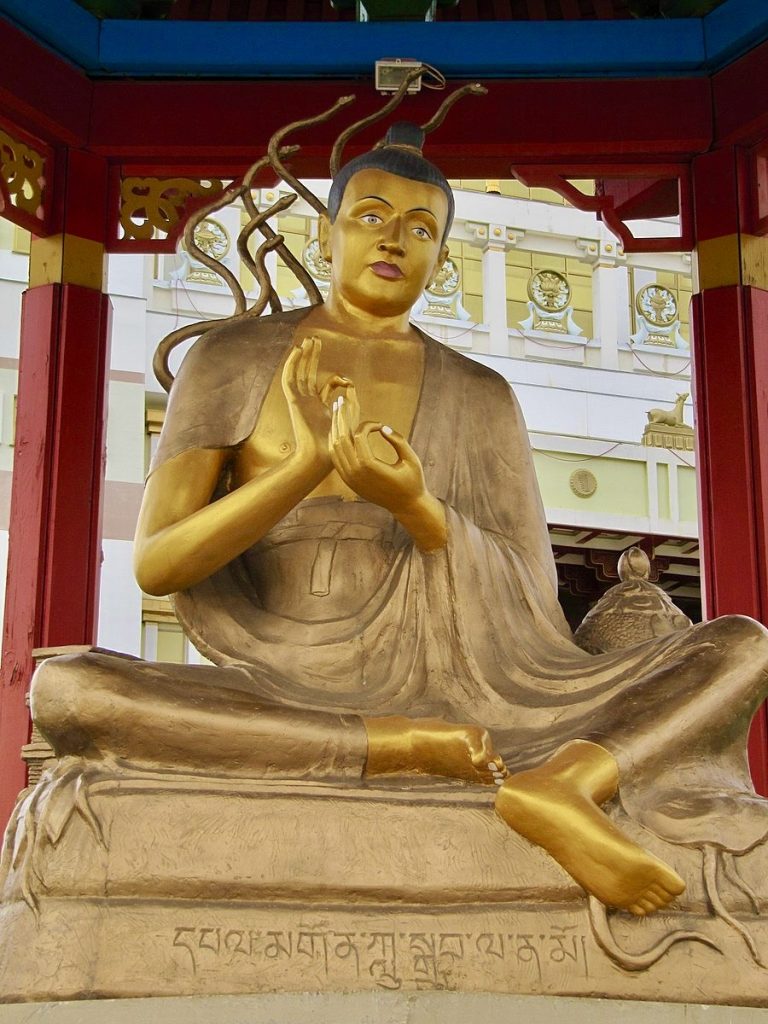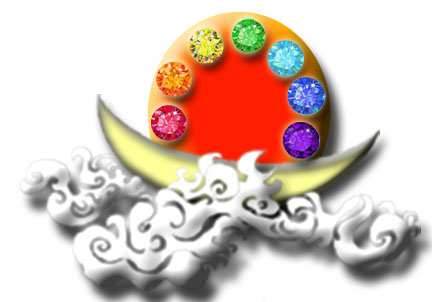
In our Saturday class this week we discussed how our feelings and emotions impacted our lives and our Dharma practice. I promised to research and share what the Buddha Master said about cutting off the emotional states that relate to our feelings that keep us as ordinary beings and unable to obtain liberation and holiness.
Holy persons are not carried away by the Eight Worldly Winds which represent a set of four opposing states which exist in our lives in Samsara. They are neither elated by prosperity nor grieved by decline. We ordinary people seek safety and comfort—our attachments—and try to avoid that which makes us uncomfortable and thus we suffer. We have trouble letting go when we should as Dorje PaMu told us “Just put it down.”
Shakyamuni Buddha:
Shakyamuni Buddha tells us in the Lokavipatti Sutta: “When gain, loss, status, disgrace, censure, praise, pleasure or pain arise for an ordinary person they do not reflect, ‘Gain has arisen for me. It is inconstant and subject to change.’ He (or she) does not discern it as it actually is. He welcomes the gain and rebels against the loss. He welcomes the status and rebels against the disgrace. He welcomes the praise and rebels against the censure. He welcomes the pleasure and rebels against the pain.”
Nagarjuna
The second century mahasiddha, philosopher, and patriarch Master Nagarjuna from southern India called these dharmas the “Eight Worldly Concerns.” It was he who retrieved the holy Prajnaparamita Sutras from the underwater kingdom of the serpent king to whom the Buddha had entrusted it. These are the sacred texts that form the “wisdom teachings” that are condensed into the Prajnaparamita Heart Sutra that we are now studying.
H.H. Dorje Chang Buddha III:
H.H. Dorje Chang Buddha expanded the eight to a list of “Twenty Dharmas Relating to Ordinary Feelings” that give us a more complete list of the feelings and emotions related to worldly concerns that normally preoccupy and sway ordinary people. As part of our daily “Learning from Buddha Reflection” we reflect on and vow:
I will cut off ordinariness and enter holiness. I will discard and not be attached to any of the twenty dharmas of ordinary feelings including:
Fame, Gain, Prosperity, Decline, Good Fortune, Gladness, Increase, Decrease, Antipathy,
Resentment, Anger, Hatred, Scheming, Defamation, Seizing, Harming, Illness, Suffering, Parting, and Death.
I have provided my recording of reading the discourse that His Holiness gave us on “Cutting Off the Twenty Dharmas Relating to Ordinary Feelings” and the related video of the discussion that followed a class we held on April 9, 2022 on this discourse. You can experience the entire class by enrolling in either D12(A) or D12 at Learning from Buddha College and Seminary. This discourse was one of several given on a trip to the East Coast taken with senior disciples in 2008 and I believe is included in the recently published volumes of the Buddha Master’s discourses (Chinese only).
CLICK for Video of my reading of the Discourse by H.H Dorje Chang Buddha III on “Cutting Off the Twenty Dharmas Relating to Ordinary Feelings.”
CLICK for video of discussion that followed the reading of this Discourse on the Twenty Dharmas that focused on how we deal with anger and gladness. It features the insight and wisdom of Gesang Suolang Rinpoche who left this world one year ago today. We miss you Gesang and your shining example of being committed to the Dharma! Thanks!
CLICK for quote by the Buddha Master on how the Eight Winds relate to the Five Vidyas.




Add comment